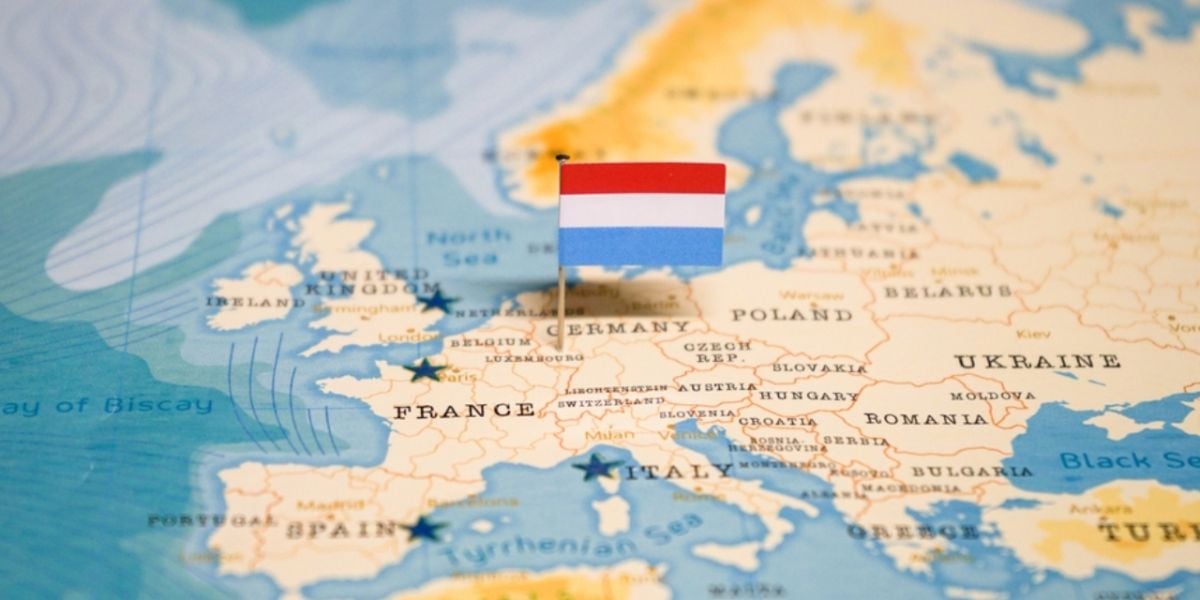
Luxembourg, a tiny nation in Western Europe, is frequently showcased as an exemplar of how diverse languages can coexist peacefully and thrive. This linguistic tapestry mirrors the country's dynamic past and its role as a cultural hub in the center of Europe. In this piece, we explore the linguistic journey of Luxembourg, shedding light on the prominent languages spoken, how they have evolved within society, and the ways they influence the everyday experiences of the people of Luxembourg.
A rich linguistic history in Luxembourg
Throughout its extensive history, Luxembourg has experienced a tapestry of linguistic influences stemming from various European powers that occupied and ruled the region. Over the ages, the languages spoken within the country have transformed, with each period of influence contributing to the mosaic of linguistic diversity that characterizes Luxembourg.
Luxembourgish: a national language
Luxembourgish, a Romance language with roots in the Germanic family, serves as the colloquial tongue of Luxembourg. Initially emerging as a local dialect among rural inhabitants, it gradually underwent standardization. Across centuries, Lëtzebuergesch found its place in daily interactions, shaping conversations between families and neighbors.
However, despite its cultural significance, Lëtzebuergësch remained unacknowledged on an official level for many years. It wasn't until 1984 that the Luxembourgish government officially recognized Lëtzebuergesch as a national language, granting it equal status alongside German and French in public administration.
French: a historical influence
French has held a significant position in Luxembourg's linguistic narrative for nearly two centuries. In the 19th century, French assumed a pivotal role as the language of the nation's court and administrative affairs. Numerous official documents, including legal papers, were penned in French, and the language permeated intellectual and administrative realms. Even today, legislative acts are drafted in French, the only language legally binding.
Although French was a symbol of prestige and education during this period, its use in everyday life in Luxembourg was limited mainly to urban and educated circles.
German: the language of education
German has wielded a substantial impact on Luxembourg, especially in the realm of education. Despite not being extensively spoken among the populace, German has been employed as the medium of instruction in schools, aiming to promote cultural and economic integration with neighboring German-speaking areas.
Utilizing German as a teaching language was viewed as a strategy to reinforce connections with Germany, Austria and Switzerland which promoted student and worker mobility across these German-speaking nations. Although this language is still widely used in the country, its usage has somewhat declined in favor of French since the end of World War II and the German occupation of the country.
The adoption of Luxembourgish as an official language
Throughout its history, Luxembourg has endeavored to solidify its unique identity and advance its native language. In a pivotal move, 1984 saw the official acknowledgment of Lëtzebuergësch as a national language, on par with French and German, within public administration.
This momentous choice bolstered the standing of Lëtzebuergësch and paved the way for its growth across education, public governance, and media domains. Lëtzebuergësch is primarily used in elementary school curricula and frequently employed in informal interactions among family and friends.
Official languages and linguistic practices in Luxembourg
Today, Luxembourg is a multilingual nation with three recognized official languages: Lëtzebuergesch, French, and German. This official endorsement of these three languages mirrors the country's rich linguistic variety and commitment to safeguarding its cultural legacy.
Languages in administration and education in Luxembourg
The three sanctioned languages find application in public administration, court proceedings, and official paperwork. Luxembourgish is the primary language in the education system, starting from the first year of school. German and French are taught from primary school, and all three languages are practiced throughout schooling. From around age 12, students begin learning English, and Luxembourgish remains the main language of communication in school. Therefore, children in the Luxembourgish school system speak at least four languages by the end of their education.
Everyday language practices in Luxembourg
In their day-to-day routines, Luxembourgers typically opt for Lëtzebuergesch when engaging in casual conversations with family and friends. French frequently takes the stage during both social gatherings and professional exchanges, whereas German enjoys widespread usage across media and advertising. The international community's influence has also led to the widespread adoption of English as a means of communication among colleagues of diverse national backgrounds.
The most commonly spoken language in daily life varies depending on where you are in the country. For instance, Luxembourgish and German are much more prevalent in the north and east, while French is more commonly spoken in the west, south, and center. Across the country, the most widely used languages in daily life are, in order: French, Luxembourgish, German, English, and Portuguese. Indeed, among the 170 nationalities present in the country, the Portuguese represent the second-largest nationality after Luxembourgers.
Multilingualism at work
Luxembourg boasts a diverse populace and a global workforce drawn by the nation's vibrant economy. Within corporate settings and workplaces, English serves as a prevalent mode of communication among colleagues hailing from various countries, although this can vary greatly from one company to another.
European Day of Languages
Annually, on September 26, Luxembourg commemorates the European Day of Languages. This occasion shines a spotlight on the nation's multifaceted linguistic makeup and fosters the pursuit of learning foreign languages. Various events and activities are orchestrated to honor and revel in Luxembourg's abundant linguistic and cultural tapestry.
At its core, the language landscape in Luxembourg mirrors its vibrant past and the seamless blending of diverse cultures. Embracing three official languages, the nation has upheld its distinct identity while maintaining a global outlook. Multilingualism stands as both a source of national pride and a valuable asset on the international stage, especially given Luxembourg's pivotal role as an economic and financial hub. This linguistic variety continues to symbolize the country's unity and welcoming stance toward the world. This diversity has molded Luxembourg's distinctive society, where languages transcend mere communication tools and stand as stewards of its historical legacy and cultural heritage.
Language learning services in Luxembourg
Luxembourg recognizes the importance of language learning in a multicultural, multilingual society. As such, the country offers a wide range of services to facilitate language learning and promote intercultural communication. Here are some of the main services available:
- Schools: Luxembourg's educational institutions provide trilingual instruction right from the early years. Language classes, encompassing Lëtzebuergesch, French, German, and English, are seamlessly woven into the curriculum. The european and international schools in the country (such as the European School, ISL, OTR, St. George's, Lycée Vauban…) also cater to their diverse student body by offering courses in additional languages beyond these, tailored to their unique linguistic needs;
- Language training centers: Luxembourg hosts several language training centers that provide courses tailored for adults. These programs cater to residents, expatriates, and professionals seeking to enhance their language proficiency, whether for personal growth or career advancement.
Here's a list of some of the language training centers in Luxembourg:
- Established in 1969, the Institut National des Langues (INL) in Luxembourg stands as a public institution with a singular focus: imparting foreign language education. A pivotal driver of multilingualism in the country, INL is renowned for delivering top-notch language courses tailored to adults and teenagers, contributing significantly to Luxembourg's linguistic landscape. Website: https://www.inll.lu/fr/;
- The Lifelong Learning Centre (LLLC) is the training institute of the Chamber of Employees (CSL) offering language courses at various levels in Luxembourgish, English, and Spanish.Website: www.csl.lu/fr/lllc/
- Berlitz Luxembourg: The language training center provides a variety of courses encompassing English, French, German, Spanish, Italian, Luxembourgish, and other foreign languages. Website: https://www.berlitz.lu/;
- Language.lu: A language training center that specializes in instructing Luxembourgish, English, French, German, and various other languages. Website: https://www.language.lu/;
- Inlingua Luxembourg: Language training center offering courses in over 20 different languages, including English, German, French, Spanish, Italian, Chinese, etc. Website: https://www.inlingua.lu/;
- Prolingua Luxembourg : Language training center offering a wide range of language courses, including Luxembourgish, French, English, German… Website: https://prolingua.lu/en/courses_25
- LetzLingo : a website to learn and practice Luxembourgish through games. Website: https://letzlingo.lu/
- Most training courses in the country, including language courses, are listed on the Lifelong-learning website. Website: https://www.lifelong-learning.lu/accueil/en
Universities: Luxembourg's universities offer language programs for students wishing to improve their language skills as part of their main curriculum or as additional courses.
Online courses: Thanks to technological advancements, a plethora of online language courses have emerged. These platforms provide learners with flexibility, enabling them to set their own study pace and access a wide array of resources.
Cultural organizations and foreign language centers: Luxembourg thrives as a vibrant hub for the global community. This has led to the emergence of various cultural associations and foreign language centers that provide specialized language courses tailored to the diverse linguistic backgrounds within the community, including offerings in Chinese, Spanish, Italian, and more.
Municipalities: Many towns and villages of Luxembourg offer language courses at very attractive rates. It is advisable to contact the town hall (gemeng in Luxembourgish) of one's place of residence to find out more.
The advantages of speaking several languages in Luxembourg
Being proficient in multiple languages comes with a range of benefits, both on a personal and professional level. In Luxembourg, the ability to speak several languages is highly regarded as a valuable asset for individuals and the entire society.
Enhanced communication: The capacity to converse in multiple languages simplifies interactions with individuals from diverse cultural and national backgrounds. This nurtures cross-cultural exchange, bolsters social connections, and facilitates a richer comprehension of various cultures. Additionally, some courses, activities, or lectures are only offered in one language. Therefore, mastering multiple languages also allows access to a greater number of activities in the country.
Career benefits: Within the realm of professions, being proficient in multiple languages holds significant advantages. Multilingual individuals can unlock a wider array of job prospects, particularly in fields like international affairs, diplomacy, global trade, public service and tourism.
Expanding horizons: Embracing new languages expands intellectual boundaries and fosters a more open perspective. It enhances our ability to comprehend and value the intricate tapestry of global cultures and languages.
Safeguarding cultural heritage: In the current era of globalization, protecting one's native language becomes pivotal for maintaining cultural roots and reinforcing a sense of community belonging.
Cognitive flexibility: Studies show that multilingual people develop greater cognitive flexibility, making them better able to solve problems, think creatively, and adapt to new situations.
In sum, Luxembourg stands as a vibrant testament to the wealth and significance of multilingualism. Through a plethora of language learning opportunities and the promotion of cross-cultural dialogue, the nation not only revels in its linguistic variety but also encourages its populace to wholeheartedly embrace the transformative influence of languages in their everyday and professional endeavors. Speaking multiple languages transcends being a mere skill; it serves as a gateway to the world, reinforcing connections among individuals and contributing to the establishment of a society rooted in tolerance and open to diverse cultures. In an increasingly interconnected global landscape, the significance of intercultural communication and multilingualism has never been more vital in shaping a harmonious and prosperous future.
We do our best to provide accurate and up to date information. However, if you have noticed any inaccuracies in this article, please let us know in the comments section below.








